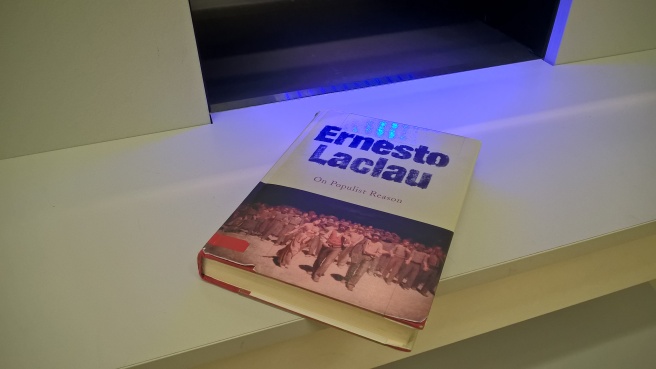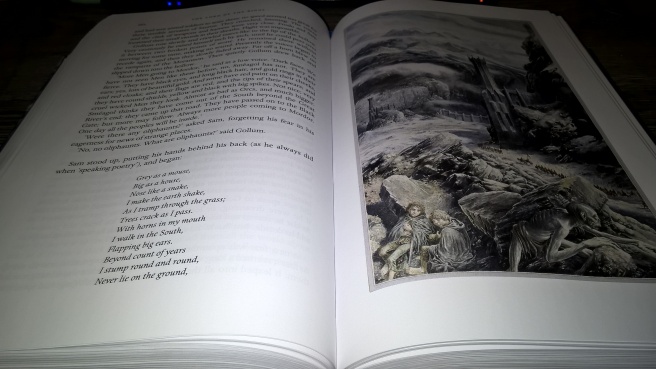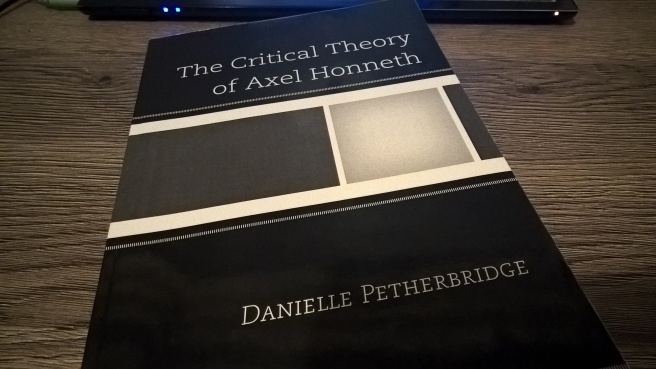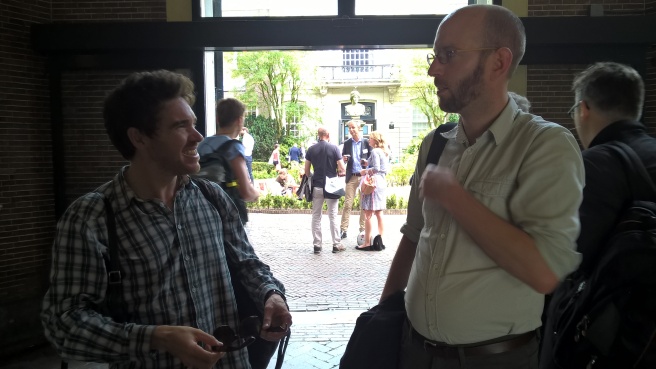Lectures in China, 1919-1920
John Dewey, The University Press of Hawaii, 1973
I am quite certain that if John Dewey was alive right now, he would be severely disappointed. Why? Well, he is a man of progress and while it is clear that we have made a great deal of technological progress since his Lectures in China 1919-1920, the social and political problems that he points out are still highly present. Our self-understanding of the social life is probably not beyond what it was back then and when Dewey wants progress, it is exactly the progress of associated life or our social self-understanding what he is looking for.
The book is divided into two parts, Social and Political Philosophy and A Philosophy of Education. Both consist of series of lectures that were given in English in China, printed in Chinese, and finally translated back to English. Thus it is not completely certain that the exact formulations are exactly as Dewey originally intended them to be. The again, as this is a collection of lectures that were intended for a wider public audience, the level of detail is never close to that of the so-called ‘deeper philosophical works’. And that, by the way, is completely fine.
Dewey starts by pretty much stating that the social reality precedes any theorization of it and that only when things go wrong we start to think about them. “It is always the social institution which precedes the theory; not the theory which precedes the institution” (p. 45). Social and political philosophy is seen as an attempt to understand the misgivings and dysfunctions of the institutional world – in an analogous manner to how the problems of the human body are analyzed in medical sciences. Dewey states that social theory has been done in two ways: radical and conservative. Both are dissatisfied with the current institutional reality but their responses are different. Radicals aim to replace the existing social institutions with utopian ones while the conservatives aim to reinstate the original purpose of the current institutions. Dewey, of course, sees that these responses are not satisfactory – we cannot merely disregard institutions nor blindly (and abstractly) hold that in their core they are sound. Instead, we should choose the third way which focuses on guiding human behaviour through knowledge and intelligence. In Dewey’s own words:
We must deal with concrete problems by concrete methods when and as these problems present themselves in our experience. This is the gist of what we call the third philosophy. (p. 53)
One interesting point in here is that whatever way one chooses to do social theory, it is never merely descriptive but rather gets its motivation from dysfunctional institutions and it also aims to correct or cure them. Political philosophy is always truly political. This is an idea that becomes central later Horkheimer’s and Adorno’s Critical Theory. Another obvious overlap is the inclusion of empirical science into social theory. Dewey is very much in favour of using the scientific method and focusing on individual cases. Those philosophers who make sweeping generalizations are said to be behind their times.
With my general interest in social ontology, I was interested to see how Dewey defines groups: “A collection of people who are united by common interests” (p. 65). This in itself is not that special but he also adds that society is constituted of groups and that social conflicts are conflicts between groups and not between an individual and the society. In short, the basic ‘ontological unit’ seems to be a group instead of an individual. The groups’ struggle for recognition is at the core of the social conflicts. Status quo is challenged as new information and new needs emerge and the struggles go on until the society is reformed in a manner that fruitfully meets the demands of the social movement.
This view is close to Honneth’s more recent idea according to which social struggles are motivated by lack of recognition. Although Dewey is quite quick in making his statements, some interesting differences between him and Honneth emerge. Firstly, as mentioned above, for Dewey groups and common interests are at the fore while Honneth starts from the individual recognition. Secondly, Dewey’s model of recognition draws more from historical institutions and our understanding of them than from anthropological human needs. Progress makes those institutions that might have filled the recognition needs in the past seem like repressive and old-fashioned. “‘Facts of nature’ turn out not to be immutable after all, and presumed ‘universal truths’ begin to totter” (p. 77).
Anyway, what Dewey in general seems to be after is a society where we can freely live in association with others. He uses the Hegelian master-slave terminology to describe any relationships in which someone rules and the others are ruled. Dewey states that this is harmful for the personal development of both parties and causes conflicts. Any social arrangement that requires use of force to work is bound to collapse. Interestingly he seems to argue for democratization of work and economy partly on the basis that this would in fact cause workers to be even more productive. In any case, economy has a special place for Dewey. In a proper Marxist/materialistic fashion he gives it primacy over other social issues:
I take it as axiomatic that the ways in which people meet their economic problems determine in a large degree what they do about their other social problems. (p. 100)
For those who want to know, free trade is clearly not the best option for organizing the economic realm. Dewey in fact blames the domination and exploitation that result from selfish competition for causing the First World War. Too much liberty leads into inequality and thus one of the main social problems is to find ways to limit liberty in a way that maximises the combination of equality and liberty. The answer? Socialism – understood as a developed governmental regulation of liberty with the welfare of the total society at its heart. And what comes to the international politics, Dewey suggests that democratic world government and transnational shared projects would lessen the likelihood of war. Nobody really wants war and democracy enables self-determination and thus global democracy means no wars.
At the end of the Social and Political Philosophy section Dewey introduces an interesting concept: socialism of knowledge. This is could be taken as a plea for open access publishing or demolition of intellectual property rights in the name of overall progress. The idea is that the more people share knowledge, the more knowledge grows and the more the ideas are improved and refined – and this is “acceptable to all of us” (p. 179). Or so Dewey thinks. A more sceptical mind could say that as long as there is money to be made with ideas, ‘acceptable to all’ is not that self-evident.
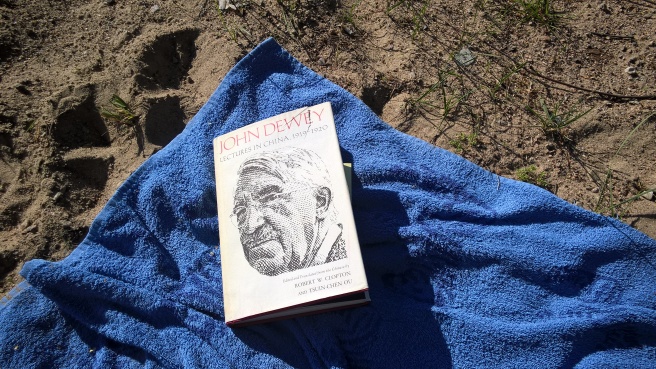
A Philosophy of Education section offers comprehensive suggestions for reforming the Chinese education system. Most of Dewey’s points are in no fashion revolutionary by today’s standards but neither are they completely outdated. He puts a great emphasis on that the educational institutions should be public and that they should always take into account three key elements: the child, the society, and the subject matter.
This section includes a number of somewhat dubious claims. The casual sexism of the early 20th century is present in the statements about how women are better suited for care work. Ironically, Dewey also warns against talking too much while teaching. “Teachers talk too much! I can’t count the class-rooms in which I’ve seen the teacher talk, and talk, and talk, without giving the poor pupils a chance to say a word” (p. 221). All the while his own lectures seem somewhat long self-standing and non-discursive talks in themselves.
Anyway, what comes to the subject matter, Dewey emphasizes learning the scientific method. Science trumps art and literature, which are “for the most part a prerogative of the aristocracy” (p. 255). Science is even connected to one’s interest in his own work: if a farmer (scientifically) understands what he is doing, work will not be mere drudgery but instead meaningful. In any case, schooling should not be too closely connected to particular professions. Dewey makes an observation that is still as relevant as it was back then: society changes quickly and we want to avoid educating people to jobs that might not even exist when they finish school.
Nevertheless, everyone must work. This is an interesting point as in the age of rapid robotization it seems less and less likely that there will be possibilities for everyone to work. However, what Dewey means by work is a contribution to a society. He takes a dim view of free-riders “who reap the advantage of others’ work” (p. 284). Although it is ultimately left in the open what kind of actions are counted as contributions to society, it seems like Dewey has manual labour in mind. This is clearly something that should be updated if one wants to follow Dewey now.
In the end the aim is the well-being of the individuals and the society. The key objective of education is not only science and scientific skills but moral education. Education is necessary for democracy and democracy is continuous education. School life does not prepare one for social life but it is already social life and part of a broader society.
I have to say that I very much liked reading this book – even though it took ages to finish. (That’s just because of me, not because of the book.) Dewey is obviously in many senses a product of his times and one could surely doubt the idea that individual well-being goes hand in hand with common good. Despite all this, Dewey manages to paint an optimistic picture of the possibilities of human life and that’s always something.

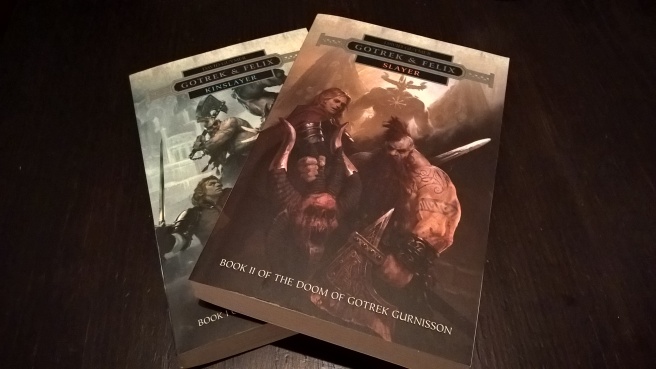
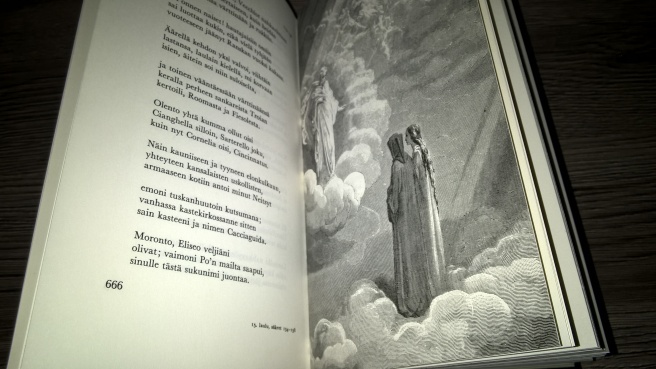
![WP_20160612_22_00_45_Pro[1]](https://sivuhuomioita.files.wordpress.com/2016/06/wp_20160612_22_00_45_pro1.jpg?w=656)
